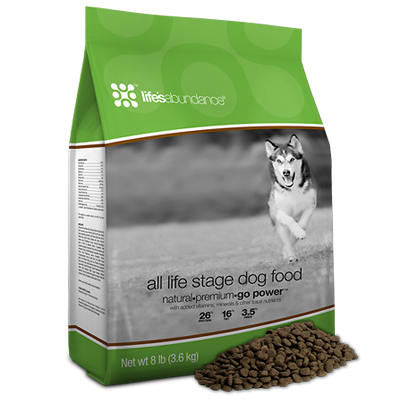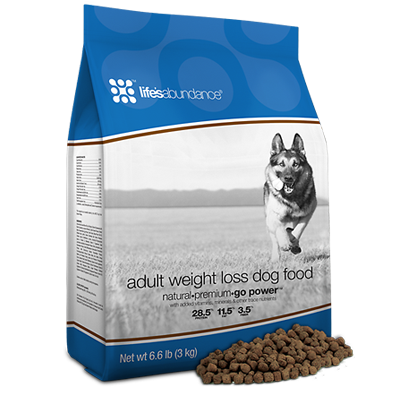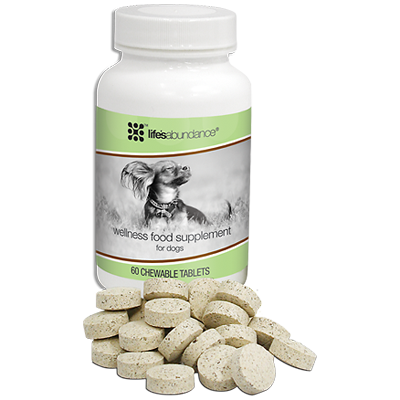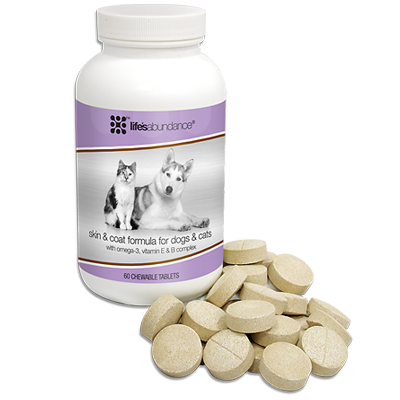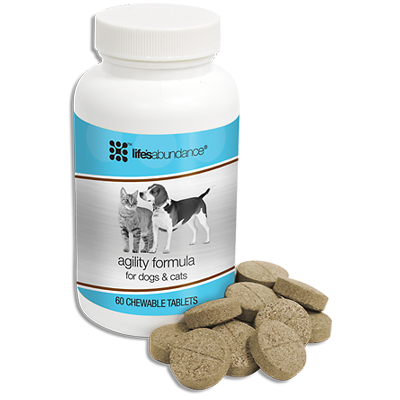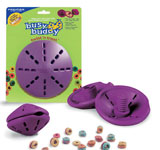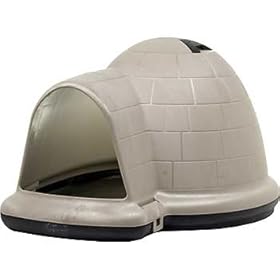Wiggle Rump Ranch
* Miniature Australian Shepherds (Little Aussies :o)
NOW... AKC Miniature American Shepherds (as of May 2011)
Wiggle Rump Ranch
Ellensburg, WA
monica
Mini Puppy Care
FOOD, CHEWS, & TREATS:
Life's Abundance:
CLICK A PICTURE TO GO TO ORDER PAGEDiscount Pricing Available to Auto Ship Customers (shipping schedule available from 2-17 weeks making it easy for everyone! See dog food calculator by clicking a bag :o)http://www.lifesabundance.com/thumbnails/dry-food-SMpup-400.pngLife's Abundance Premium Health Food for Puppies & Adult DogsLife’s Abundance Premium Health Food is made with select ingredients, including high-quality chicken and whitefish meals, whole grains, nutritious vegetables and fruits, omega fatty acids and much more. We never use corn or wheat products and we never use artificial flavors or colors. With Life’s Abundance, you can be confident that you are feeding your dog advanced nutrition.Life's Abundance Weight-Loss Formula for Adult DogsIf your dog’s weight is a growing concern, consider the nutritious Weight-Loss Formula. Formulated for effective use as part of a weight loss or weight control program, Weight-Loss Formula is a nutritionally balanced food that delivers the support dogs need to lose fat and maintain healthy weights. And like all Life's Abundance products, this food contains no artificial flavors or colors, and no corn, corn gluten, wheat or wheat gluten.SUPPLEMENTS:
“The more we learn about the way bodies function, the more amazing they seem to us. There is a growing amount of anecdotal evidence that suggests a mammal’s body has a highly complex, natural intelligence. As a holistic veterinarian, I review such evidence, interpreting it within the context of established scientific knowledge. Based upon these observations, it seems that a dog’s body “prefers” nutrients as they exist in real foods, in their more natural state. On a cellular level, their bodies are familiar with the nutrient components and therefore the body knows to absorb and assimilate exactly what it needs. That is why I believe that small amounts of nutrients in real foods can have a profound affect on a dog’s body. In light of this information, I formulated a new approach to add to the overall nutrient intake, creating Life’s Abundance Wellness Food Supplement for Dogs.”
-Dr. Jane Bicks, DVM
Life's Abundance Product FormulatorBusy Buddy Twist-n-Treat
The Busy Buddy Twist-n-Treat is a huge hit around here! Aussies are a dog that like to work and this fun toy gives them their meals as a reward for 'working the kibbles out of the holes'. We do not use "treats" in these, rather - this is how we feed our dogs their meals. They are easy to clean & fill and our dogs just love them! They help provide some much needed mental stimulation for your pup.
Kongs


Kongs are a really fun way for your puppy/dog to use their imagination and their teeth to get a yummy reward. You can fill the kong with your puppy/dogs food, peanut butter, yogart, meat, or anything you can think of that is safe for your puppy/dog to eat. We freeze our filled kongs for an added challenge and longer play session for our dogs. Kongs work great for crate times or when you have to leave your puppy/dog at home while you are away. Kongs are the ultimate boredom busters!
CRATES:
*Crates are not meant for long time confinement.
Crates are one of the single most important part of training our puppies. They, dogs, have a natural 'den' instinct that makes 'their bedroom' (crate) a safe place for them. If a puppy returns to their crate for a nap, we know they are off-limits, they have had enough. When a puppy rides in the car, they are safer in a crate, and so are you. :o) If you decide to go to a dog sporting event, travel with your dog, or have your dog boarded while you are on vacation, the crate takes a great deal of stress out of the situation for your pet. Vets also love crate trained dogs. They are much more at ease when recovering from their alteration surgery in the clinic.
EX-PENS:
Ex-pens can let you safely confine your puppy anywhere! We love these! They allow you so much freedom in where you want your pet to be, or not to be, while you are cooking dinner, away from home, or just busy with other matters that require your full attention for a while. We give a crate, water, chew toy, bed, litterbox, etc... to our puppies who are having ex-pen time. It is a great way to socialize your pup to new things/people, they have their 'safeplace' but can still be part of the action by being able to see and smell what is going on around them.DOG HOUSES:
KENNELS:
*Please don't think for a minute that we endorse the practice of having a dog "live" it's entire life in a kennel. They are Great Safety Tools that should not be abused.BasicSafety comes first! If you are unable to 'watch' your pet or while you are out, please keep them safe! A dog left to himself can easily end up in trouble when not safely confined. Think of this as his/her outdoor playpen. Include a crate or doghouse as his/her bedroom and furnish the kennel with a kong, twist'n treat, fresh water, safe toy, chew bone, favorite blanket, you get the picture.Deluxe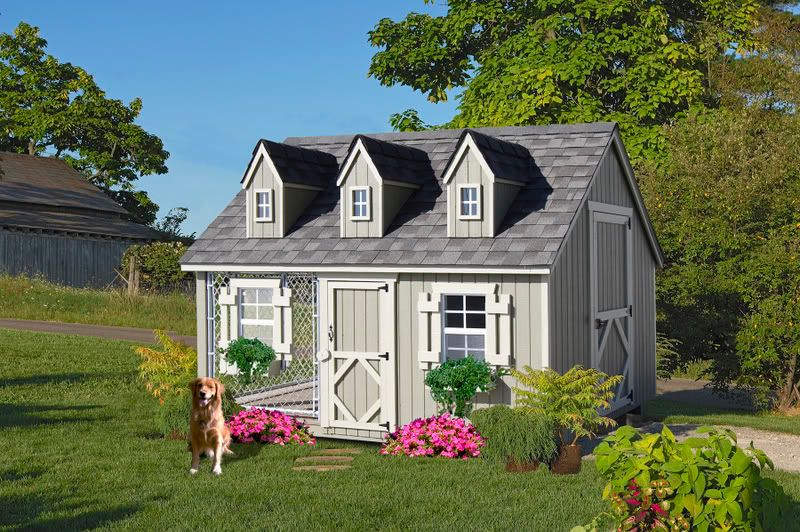 Cape Cod Cozy Cottage KennelDesigned after a child's playhouse the Cape Cod & Victorian Dog Kennels are ADORABLE! These rank high on our Wiggle Rump Wish List! To find a dealer, do an internet search of either title listed below the pictures here.
Cape Cod Cozy Cottage KennelDesigned after a child's playhouse the Cape Cod & Victorian Dog Kennels are ADORABLE! These rank high on our Wiggle Rump Wish List! To find a dealer, do an internet search of either title listed below the pictures here.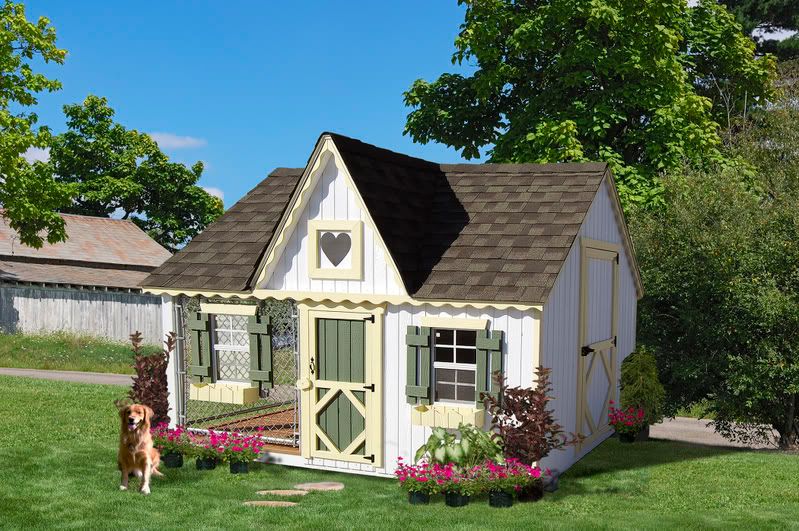 Victorian Cozy Cottage Kennel
Victorian Cozy Cottage Kennel
Basic Elements to Puppy/Dog Care:
Exercise, Training, Nutrition, Health Care, and Affection.
Exercise:
"Walk Your Dog". Dogs enjoy walking, sniffing, seeing & meeting new things/people/animals. A walk is physical and mental exercise when led by you. Be sure to include times where your dog/puppy is walking nicely at your side and times where he/she can move more freely to sniff, go to the bathroom, and say "hi" to new acquaintances. We all should be careful not to push a puppy when they're growth plates are still developing, so save the Jogging for adulthood.
"Fetch". A good game of fetch is not just for the Retrievers! All dogs can learn to enjoy a good game of fetch to release extra energy and please their master. This is a great exercise when you find yourself short on energy.
"Tug". Now some people will tell you to never play tug-of-war with your dog, it's too aggressive. I say play as long as it is 'fun'. We use toys to keep our dogs excited about training. Using games like 'tug' as rewards for desired behaviors keeps our dogs from even knowing they are being trained! If you dog is nipping at your skin in attempt to get the toy or becoming overly excited about the game, you have played too long and/or have some more work to do on the manners part of 'teeth are never allowed to touch the skin'. Discountinue the game until you feel comfortable with the outcome of it or simply don't play it at all. This is your 'best friend', so use your own judgement on what will make a win-win situation that you are both happy with.
"Hide & Seek". Many dogs love to 'find' stuff; food, toys, and even you! If you sneak off to another room to do a chore while your canine companion is sleeping on the pillow, you can call his/her name and see how fast and excited they will find you. Give a big reward of affection for a job well done. You can hide objects like kongs or favorite toys in boxes of crumpled papers. I recieved a wonderful video clip from a Wiggle Rump Family who's little guy unwrapped his Christmas present to find a special beaver toy as his gift! Aussies love to use their minds and problem solve. Be creative!
"Go To Training"....
Training:
"Manners". Teaching a puppy good manners is a task that should be going on all the time. First you need to decide 'House Rules' and have the whole family on board BEFORE you bring the puppy home. Will your puppy be allowed on the furniture? In every room of your home?(always supervised:o) Prevention is key when it comes to bad habits like chewing(on undesired items), barking, jumping up, etc... As a rule of thumb, try to have more "good boy/girl!" responses than "No!" responses. Once your puppy knows a few basic obedience skills, teaching and maintaining manners will be much easier. House Rules may be tested throughout puppyhood and adolesence(up to 24months), but if you stick with it and be consistent, you Will be rewarded with a well mannered companion in the end.
"Puppy Kindergarten". This is the first class offered from most trainers. There is a heavy emphasis on Socializing and you will learn many good ideas for creating a well socialized pet. In addition there will be some basic obedience skills introduced, practiced, and possibly mastered with an Aussie Pup!(they are So Smart:o) Finally your class will probably include some play time for the pups to play with other breeds/sizes that are their same age.
"Basic Obedience". Sit, Down, Stay, Heel, etc.... you know the drill. Obedience is the foundation to almost everything you may want to do with your dog AND for a great family member!
"Dog Sports". Becoming a Human/Canine Team is one of the most rewarding experiences I have ever had. Your dog will need an understanding of basic obedience skills and you will need some training on using those skills to manuver your dog through a fun coarse. Agility, Rally, & Flyball come to mind. It's up to you, the sky is the limit with an Aussie!
Nutrition:
"Kibble". We feed dry kibble here at Wiggle Rump Ranch. We have been feeding Life's Abundance since 2013 and have been Very Impressed! Our dogs' general health is outstanding and litter sizes have been large and strong!
"Raw". I am not the person to ask for information on raw diets for dogs. I have read great things and not so great things about them. Feeding a BALANCED diet is of utmost importance, so keep that in mind when choosing your feeding method.
"Supplements". Even dogs that are fed a high quality diet can benefit from supplementation. We believe whole foods (yogurt, eggs, & coconut oil) and whole food supplements like Dr.Jane has formulated are the best and the only ones we reccomend as they work perfectly with our food.
Health Care:
"A Vet You Trust". This is so important! You should not feel like a 'number' at your vet's office. You also should not feel rushed when you are in the exam room. I want you to find a vet that will listen to you, answer your questions, and will love your dog! Our vet, Dr.Fuller, always lowers his head to our dogs while they are on the table to recieve kisses. Your vet should not be quick to offer you a ton of tests, medicines, and/or vaccinations. Take the time to talk with them about 'how much' is neccisary. We do give basic puppy vaccines, but we are not fans of the annual vaccination schedules for the life of the dog.
"MDR1 BEWARE". Aussies are in a group of dogs that can have very bad, even fatal, reactions to some drugs. You should have this list, http://miniaussierescue.org/BusterAlert/MDR1VetFactSheetLK9-8-07.doc , and be sure none of your flea treatments, wormers, medication, etc... have any of these drugs in them. Also be sure your vet knows about MDR1!
"Grooming". Aussies do best with a weekly brushing, nothing fancy really. They have an easy coat that doesn't matt easily, unless never brushed. Trouble areas for tangles would be the soft hair behind the ears and the long britches under the tail stump. Your Aussie will shed twice per year, spring/summer and fall/winter. To speed this process give a good brush out when you notice them beginning to 'blow their coat'. Nails need to be kept short. Some dogs will seem like they never need trimmed and others will be weekly. Teeth can be brushed with a Dog Toothbrush and Dog Toothpaste. You may have to take your dog in for a professional teeth cleaning if you are unable to remove plaque buildup.
Affection:
"Hugs, Pets, & Kisses" Oh how this is good for you both! A human can benefit even more than the dog from this affectionate relationship that you will form. Wiggle Rump Puppies and dogs are no strangers to these three affections. From the day they are born I kiss them as I place them back in their whelping box after looking them over and hold them to my neck as I talk to them so they can 'feel' my words before they can hear. My children are stroking them daily as well. Hugs come in when they are a little older. I want every Wiggle Rump to be touched affectionately every day of their lives! I want every puppy family to be affectionately touched by a Wiggle Rump every day of their lives. This is a gift to you.
"Belly Rubs" Belly Rubs are so good for your relationship with your dog. A laying down position with you in control of the petting while your aussie is relaxed does more than you think! Leadership and submission, to a deserving owner who is taking the time to just 'be' with their pet, will be accomplished with this ritual. Sometimes this takes practice, not all puppies/dogs readily accept this form of affection due to their genetic temperament, but if you practice and take it slow you will be successful.
"All Of The Above" Everything we have mentioned in the above categories of Exercise, Training, Nutrition, and Health Care are Affections to your pet! Feeding your dog a treat could mean more to him than a petting session. Asking your dog to perform a trick could be more rewarding to him than a kiss. I say experience the joy of them all and take note of what his/her favorite affections are. Someday you will have to master a really chanllenging skill and will want to bring out the 'big guns' to help your dog see the value in the new task at hand.
Ages and Stages, what to expect:
http://www.k9station.com/articles/puppyhood.htm
This is the article I keep referring back to when I take on raising up a new puppy/litter here. I can't say it any plainer or simpler than Lisa did in her article. (link above :o)
Current Puppy Schedule:
6-7am-ish - Outside Puppy Yard Potty/Play Time
8am - Crate for Breakfast
9-10am - Outside Puppy Yard Potty/Play Time
10-2:45 - Inside Playpen/Outside Play Yard
2:45pm - Car Ride to pick-up kids from school
4pm - Crate for Dinner
5pm - Outside Puppy Yard Potty/Play Time
7pm - Inside for All Family Time
8pm - Bed Time *I take the dog beds out of the dining room so the puppies snuggle up in their crates with their baby fleece blankets)
*** This is generally how our day goes with variations due to our human family schedule. Most playtimes outside I am out there with them doing chores, training other dogs, etc... Or I am watching them out my living room window. :o)
Tips For Making Your Puppy Schedule:
* You will always need a potty break first thing in the morning. A puppy is generally full of themselves first thing in the morning so it is a fun time to play/train as well! Now if your puppy has you up at 4am to go potty, I would quietly take him/her out and make it boring, returning puppy to bed until the regular time you would like puppy up for the day.
* After the first Potty/Play session, breakfast for the puppy is a good idea. This gives you a chance to get ready for your day while puppy is busy.
* If you have to leave your puppy, be sure to offer another Potty/Play session right before you go. If puppy will stay indoors while you are gone you can use a crate if you will be back at lunchtime for another Potty/Play session, otherwise you will want to offer a gated off safe place of your house or a playpen with a litter box or puppy pad. If you want to keep your puppy outdoors while you are away, you must be sure you have an area the is protected well from predators, the weather, and escapes.
* Puppies/Dogs will get bored if not given mind stimulating things to do when they are not with you. This is one of the reasons why dogs can develop bad habits like obsessive barking, digging, or rearranging your furniture. We love twist'n'treats, Kongs, and Chews. Of coarse if you don't have 'enough' time to walk, play, and train your puppy.... This might not be the right time in your life to add a new little on to your home. Be honest with yourself for the puppy's sake.
* Dinner Time should not be too late. Your puppy should have plenty of time to *do their business* before bed.
* You will want an All Family Time every day for your puppy to interact with everyone. Sitting in a circle and having each member call the puppy and give a treat is a fun game. Aussies can very often become a 1 person dog if not given positive experiences with everyone in the household. Although there is always 1 person who is 'momma or daddy' your goal should be to have a well balanced Family Dog.
* You will always need a Potty/Play break to get puppy ready for bed.
Sample Adult Dog Schedule:
An ideal schedule through the eyes of a dog might be:
7 am– 7:30 am
Wake up and go for a brisk walk with the opportunity to urinate and defecate.
If you have 10 minutes for a little playtime, that would be great. Fetch or something interactive is a welcome game.
Spend about 10 minutes of quality time just talking and petting your dog. Notice anything unusual about his demeanor, attitude, hair coat, look of his eyes etc.
7:30 am – 8:00 am
Time to eat; change the water to make sure the bowl is full and fresh.
Offer food if you feed your dog more than once a day.
8:00 am– 9:00 am
Dogs like to have the opportunity to go out again after they eat for the opportunity to urinate and defecate.
9 am – 12 pm
Nap time!? Or time to follow you around as you do your housework. If you are off to work – then naptime it will be.
12 pm – 1 pm
Ideally, most dogs would enjoy some interaction again with the opportunity to go out, exercise or play.
1 pm – 5 –pm
Nap time again? Or another opportunity to observe you working!
5 pm – 7:30 pm
Drinks, dinner, and playtime. Again, change the water and offer dinner. Monitor your dogs' appetite. Offer a longer and more extensive playtime than this morning. Let him really play and burn off some of that pent-up energy.
7:30 pm – 11 pm
Quiet family time. This may be a good opportunity to brush and groom you dog, brush his teeth and spend some quality time, or even jump on the couch and watch some TV.
Before bedtime
Most dogs appreciate another opportunity to go out and do their "business" on last time.
Bedtime!
It is understood that most people have to work and may not have the flexibility to offer all the frequent trips outside. If you work really long hours, you might consider Doggie Daycare or having a pet walker, or neighbor come and gives your pet some time, attention and exercise.
Wiggle Rump Ranch
Ellensburg, WA
monica
